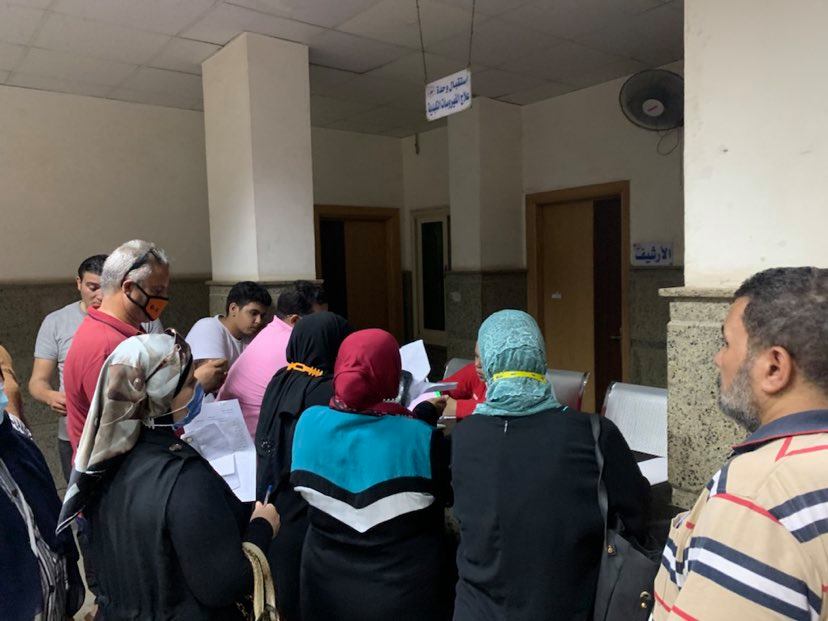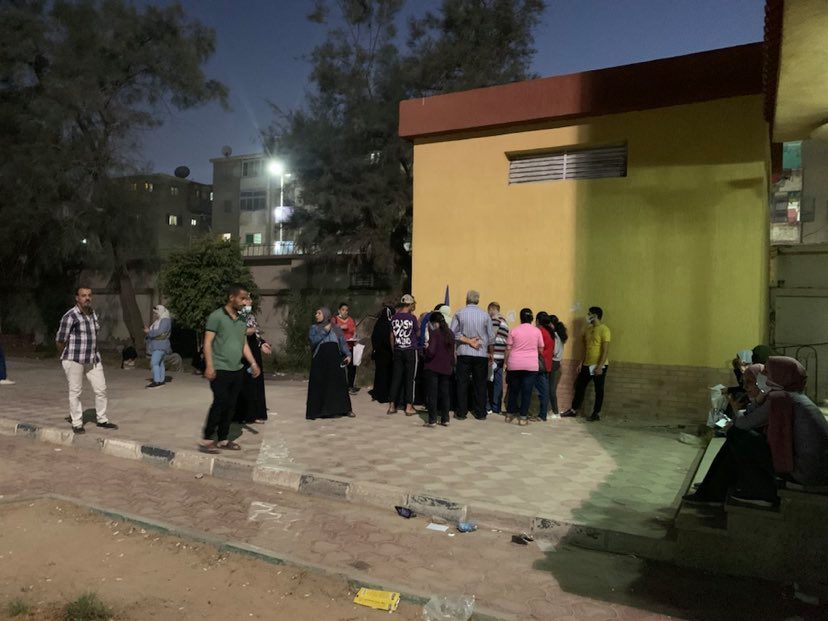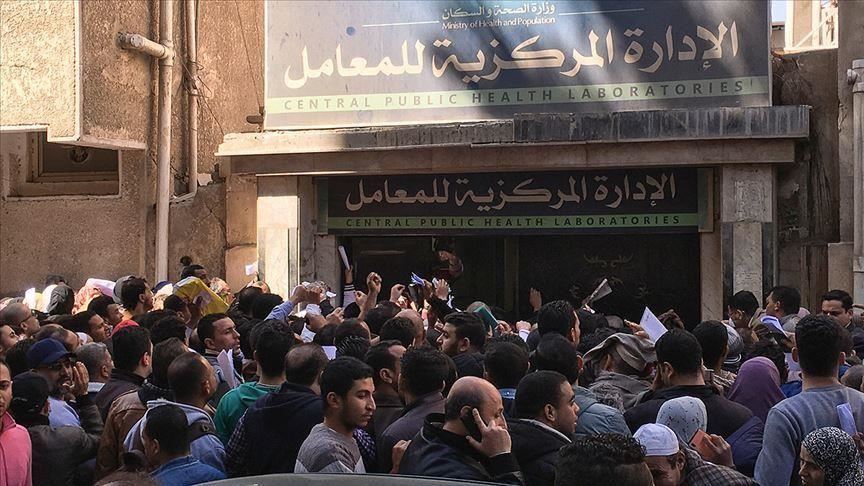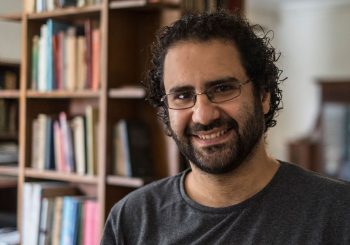
With an enthusiastic and heavily publicised response to the COVID-19 pandemic, Egypt had shown some promise over the first year of locally-endorsed social distancing and travel quarantines in Marsa Alam. This steadfast handling, however, was cut prematurely short earlier this year when Egypt did not outline a clear and cohesive national strategy for vaccine rollouts. According to research journal Elsevier, many of Egypt’s COVID-19 cases were largely unreported throughout the initial outbreak in 2020, of which several unclassified cases have exported the virus to other countries.
Without a wide-reaching national campaign or overt information outlets, such as billboards, audiovisual adverts, or traditional radio, Egyptian authorities have laboured against “haphazard” vaccine distribution. Hospitals remain understaffed and without consistent, uniform procedures, as those who are most at risk or without sufficient digital literacy face the arduous task of waiting with no foreseeable solutions in sight.
Despite upwards of 11.9 million vaccine doses administered, and around 4.2% of Egypt’s population vaccinated, many have criticized the number as indicative of slow progress, a lack of public awareness, and a redolent distrust of health officials. This includes a number of Egyptian health professionals who have voiced their hesitation to get vaccinated.
Priority Management
Egypt first announced its vaccine rollout on 24 January, earlier this year, and although immediate in comparison to announcements worldwide, it became hard to gauge a distribution timeline that was suitable for Egypt’s populous nature. Online registration for health workers, the elderly, and those with pre-existing risk factors was encouraged starting 28 February, and within the first week, over 150,000 people had motioned for registration. Before they were dealt the vaccine, however, registration was then announced to the general public on 6 March, leaving thousands of chronically ill, elderly, and otherwise vulnerable communities still unvaccinated.
When asked, many Egyptians note receiving appointments immediately upon registering, while their elderly grandparents enter their third and fourth months of waiting. Amnesty International claims awareness of several cases wherein Egyptian youth were contacted prior to their older or more at-risk relatives. After an Instagram survey in a similar vein on 11 August, Egyptian Streets received more anecdotes of long wait-periods. Some have even noted a lack of knowledge regarding how to register, the avenues to take afterwards, and available options.
While the government has since increased the number of vaccination centers across the country and within Cairo, according to Africa News, priority groups were unable to secure appointments at the newly available locations. Philip Luthur, Middle East and North Africa Research and Advocacy Director at Amnesty International, continues to “call on the government to ensure that priority groups are in fact prioritized, and that the distribution plan is inclusive, accessible, and non-discriminatory.”
The Ministry of Health and Population voiced its intention to prioritize vaccination of frontline medical teams in public, police, and military hospitals back in January, though many practitioners and health workers were not included in early rollouts. By April, the Doctors’ Syndicate aired concerns about the limited number of vaccinated professionals, declaring that 578 doctors have passed after exposure COVID-19. According to Mada Masr, 115 of the affected doctors caught the virus while working in unsanitary conditions. Community transmission is credited as the cause of remaining casualties.
Meanwhile, several remote medical centers are understaffed and without health inspections, while others attempt to balance an overflow of appointments. This has placed many in the direct line of fire for COVID-19 exposure. Some elderly individuals have decided not to get vaccinated at all; according to one old woman, who has chosen to remain anonymous, “there’s no use” getting vaccinated if “[she] will get sick either way.”
Even Egypt’s strikingly young population has voiced concern over government vaccination and quarantine. The Guardian alleges that many have opted to “self-isolate if they contracted the virus, reluctant to surrender to a government that has quarantined people in a remote area close to the Libyan border, and detained doctors in the past.”


Trending Travel & Vaccine Availability
While some have begun to give up on vaccination entirely, others have turned their attention abroad. There is an undercurrent of individuals who have chosen to travel to secure shots for themselves and their loved ones. Commodity trader, Baderkhan (37), is one such individual.
Baderkhan is of Jordanian origin, married to an Egyptian woman. Despite continuous efforts to register and prolonged waiting periods, only Baderkhan’s wife received an appointment. With a job that requires her to travel often, the lack of available vaccines other than China’s Sinopharm posed an immense issue.
Sinopharm remains uncredited in many European and Arab countries, and accordingly, access is limited to passengers without Pfizer or Moderna vaccination certificates. According to Baderkhan, when they called “to change the location [of the vaccination center], the Ministry of Health representative said they will call us back within 3-5 days. It’s been more than two months.”
Counter to their hopes of getting the AstraZeneca shot, both Baderkhan and his wife sought out vaccination in Jordan after not hearing back.
“It literally took us 16 hours [in Jordan] from the time we registered till we got an appointment and got the [shot],” writes Baderkhan.
Similar sentiments of frustration are mirrored in an anecdote by foreigner Megan Cleary, who describes herself as six weeks pregnant at the time of registration. She was “surprised and delighted” after receiving a near-immediate appointment, but would soon be advised by her Egyptian obstetrician-gynecologist against taking the shot at all.
“She said they do not recommend that pregnant women get vaccinated in Egypt,” says Cleary, “but acknowledged that other countries advise [it].” In a last ditch effort, Cleary contacted the vaccination center directly and was given similar explanations.
Cleary’s own country had only recently, according to her, announced their prioritization of vaccinating pregnant women.
“I contacted my doctor back home, and she told me that it’s only safe to get Pfizer or Moderna if pregnant,” she explains. “I felt I had no choice but to go home, because it’s very difficult here in Egypt when there are few restrictions, people don’t always wear masks, and I work with young children.”
After prolonged consideration and no other choice, Cleary travelled home, noting that it was “costly and inconvenient” but that she understood “what a huge operation it is to vaccinate the large [Egyptian] population.”
She concludes that she is “extremely privileged that I was able to travel and access a safe vaccine. That is not the reality for most pregnant women in Egypt.”
Alongside Baderkhan and Cleary’s personal experiences, both explain that their elderly cohorts and in-laws have not yet been vaccinated, despite their registration and their prescribed need for Sinopharm over potent alternatives.
Although the government has more recently, as of September 2021, begun administering Pfizer and Moderna to active travelers and expats, the accessibility of doses is limited and indefinite for those who apply. With the introduction of Johnson and Johnson, and the recent restock of AstraZeneca, there is a hopeful, upward curve for those vying to travel.

Access, or lack of?
Digital literacy has been a work-in-progress for Egypt in the last decade, but with the onset of the pandemic, the issue has become a mainstream concern. Between the shift to digitized spaces and Egyptians’ reliance on on-ground media, the vaccine rollout – and online sign-up – has struggled against multiple accessibility barriers.
Given this inconsistent nature of literacy and access in governorates other than Cairo, many Egyptians have been unable to register, or find out other means of sign-up for vaccination. The scarcity of low-income, rural area targeting has caused many impoverished areas to showcase distinctly empty vaccination centers. Many refugees, migrants, and informal ghetto settlements in and around Upper Egypt are unaware of the vaccine rollout, and in some cases, local health workers have taken up the mantle to spread awareness in the wake of governmental silence.
In addition, distribution ethics were criticized by Mada Masr, who reported the preferential treatment of parliamentarians and their families, where many were vaccinated despite not classifying as high-risk, vulnerable groups.
Egyptian detainees have also struggled with vaccination, despite the on-going attempts to liberate inmates of overcrowded prisons. While many detainees have been granted a presidential pardon, others still face the risk of infection due to the high-density nature of some prisons across the country. Egyptian Health Minister Hala Zayed announced that the start of detainee vaccination should occur “soon,” as of May 2021. Despite this, El Sharq Research Center reports “deteriorating conditions” in prison facilities and the “denial of medical examinations despite repeated requests.”
Without proactive distribution, many prisoners were exposed to the virus. Abdelmonem Aboulfotoh, founder of Misr Al Qawiya and former presidential candidate, has put forth a vaccination request through his public prosecutor; and although Aboulfotoh qualifies within the at-risk demographic due to his age and medical history, he has been denied health care and has yet to receive a dose.
Egypt was voracious in its attempts to contain the COVID-19 virus amid initial 2020 hysteria, however, with escalating local tension around vaccine distribution, the government is urged by international institutions to take swifter and more targeted action. Many at-risk, vulnerable groups remain unvaccinated, continuing to wait for their appointments with growing frustration.







Comments (2)
[…] Egypt’s Vaccination Program: Failed? […]
[…] المصدر by [author_name] كما تَجْدَرُ الأشارة بأن الموضوع الأصلي قد […]